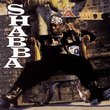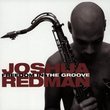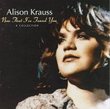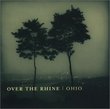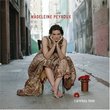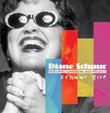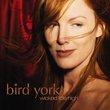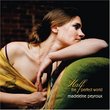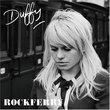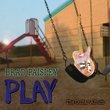| All Artists: Giuseppe Verdi, Fausto Cleva, Eileen Farrell, Columbia Symphony Orchestra, Sedgwick Clark Title: Eileen Farrell Sings Verdi Members Wishing: 0 Total Copies: 0 Label: Sony Release Date: 1/14/1997 Album Type: Original recording remastered Genre: Classical Style: Opera & Classical Vocal Number of Discs: 1 SwapaCD Credits: 1 UPC: 074646235829 |
Search - Giuseppe Verdi, Fausto Cleva, Eileen Farrell :: Eileen Farrell Sings Verdi
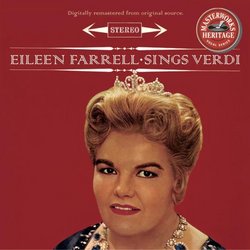 | Giuseppe Verdi, Fausto Cleva, Eileen Farrell Eileen Farrell Sings Verdi Genre: Classical
|
Larger Image |
CD DetailsSimilar CDsSimilarly Requested CDs
|
CD ReviewsOne of the greatest voices EVER Craig Matteson | Ann Arbor, MI | 07/08/2002 (5 out of 5 stars) "Eileen Farrell was a fabulous singer and had one of the greatest voices ever. She was also one of those rare opera singers who was also comfortable and skillful with popular music. She was also an even rarer talent in that she valued her family life more than her career. Even so, she is one of the all time great sopranos.This recording contains ten glorious arias and duets from Verdi operas such as Aida, Il trovatore, Don Carlo, and Otello (and others). I don't know how you can not want this in your collection. Just glorious music making and a voice to die for." Verdi singing doesn't get better than this! creighton@ath.forthnet.gr | 04/10/2003 (5 out of 5 stars) "Eileen Farrell. What can one say? Well, for starters, she is probably the best female Verdian that America has ever produced. I am sorry Price fans, but Farrell is better than Price. Yes, Price is more famous and deserves her fame very much, but that doesn't mean she was the greatest American spinto there ever was. Farrell beats Price in the areas of pianissimo, diction, and identifying with the characters she sings instead of prima donna showoff singing. And no, I am not a racist. Farrell's voice soars in Verdi's music. Her magnificent instrument is capable of anything Verdi throws at her. She has an excellent trill. Her pianissimos and diminuendos are world-class. She really digs deep for characterization. Her "Pace, pace, mio Dio" ranks with Tebaldi's version. Farrell's version of the Willow Song from "Otello" would definitely make Tebaldi jealous. Her "Ave Maria" definitely rivals Caballé's stunning 1964 version. Farrell almost sounds like Tebaldi when she sings in her upper register. Her "Ritorna vincitor!" is awesome in its scope. Angry and self-loathing in the first half, then gently innocent in the second. Amazing. Her "Come in quest'ora bruna" demonstrates her wonderful agility. She beats every soprano who has recorded "Tacea la notte placida" and "D'amor sull'ali rosee" with her own masterful renditions. Her pianissimos, trills, and stunning agility are showcased in these two arias. Among the three duets with Richard Tucker (an excellent tenor and partner for Farrell), the only one worthy of the two's talents is "Pur ti riveggo" from "Aïda". The two other arias, one from "Don Carlo" and the other from "Un Ballo in Maschera", are two of Verdi's most overrated. If you want to listen to justly praised and magnificent love duets, listen to the master of all Italian love duets, Giacomo Puccini. Verdi, as great as he is, cannot come close to Puccini in expressing love through operatic music.This disc is very highly recommended. I pray that every up and coming spinto, American or otherwise, listens to Farrell's singing closely and learns from her. It is truly a disgrace to Verdi's name that Angela Gheorghiu's Verdi recital has been praised to the heavens by the blind music critics. No light lyric soprano should even consider recording an entire album of Verdi soprano arias, no matter how talented they are. When you hear this recital, you will be mad at Gheorghiu for even attempting to sing this music. This just may be the best Verdi recital ever recorded." What a great Verdian singer creighton@ath.forthnet.gr | 03/31/2000 (5 out of 5 stars) "I have never heard Eileen Farrell in Verdi's operas before since she never made any complete recording of them. However, after listening to this nice album, I become wondered what could have been a great "Trovatore", "La Forza" or "Aida" by Farrell. It is temping to compare her singing with what of Leontyne Price, one of the greatest Verdian sopranos of our time. Yes, she may not have the juicy voice of Price but she compensates with two things that are lacking in Price's singing, agility and impressive pianissmo. She is also very involved dramatically. Her "Pace, pace" is well sung and moving, probably ranks among the best together with Tebaldi's. The duets with Richard Tucker are also excellent. A real HERITAGE album!"
|

 Track Listings (10) - Disc #1
Track Listings (10) - Disc #1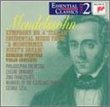
![Die Entführung aus dem Serail / Bruno Weil [highlights]](https://nationalbookswap.com/cd//m/20/4320/6004320.jpg)
